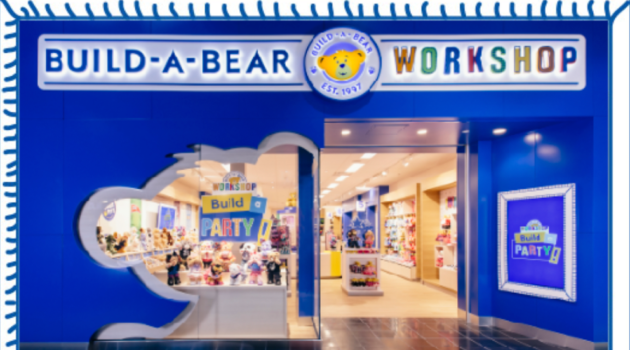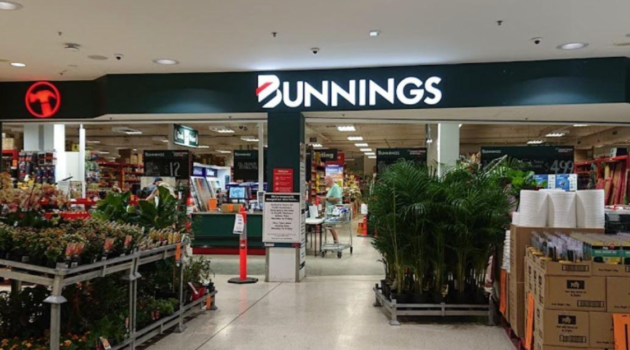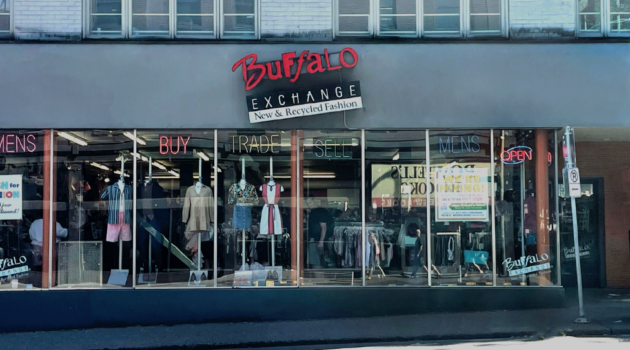In today’s rapidly evolving e-commerce landscape, shoppers constantly look for alternatives to their favorite stores. They seek to discover new products, better prices, or different styles. Enter the concept of ‘Stores Similar To,’ a tool to harness this consumer behavior. Let’s dive into what it is, how it works, and why it’s so crucial in the modern shopping ecosystem.
In the bustling e-commerce landscape where options abound, consumers often want to expand their horizons and discover stores akin to their favorites. But how does one navigate this vast ocean and pinpoint stores that match their preferences? Here, we delve into strategies and tools to assist shoppers in finding similar stores.
Explore
Stores Similar to Bunnings 2025
Bunnings, a hardware and home improvement store popular in Australia and New Zealand, is a must-visit for DIY enthusiasts and professionals. It’s…
Stores Similar to Buck Mason
Buck Mason’s timeless designs are renowned for their effortlessly cool style. They also have a high level of craftsmanship. Buck Mason is…
Stores Similar to Buffalo Exchange 2025
Buffalo Exchange is known for its carefully curated secondhand clothing. Buffalo Exchange is a favorite among thrift store enthusiasts and fashion-conscious customers.…
1. The Need for Finding Similar Stores
Diverse Product Range: Even if two stores cater to the same niche, their product variety can differ, offering consumers more choices.
Price Comparisons: Identifying similar stores can aid in comparison shopping, ensuring the buyer gets the best deal.
Backup Options: If a favorite store is out of stock or ceases operations, having alternatives is beneficial.
Experience Different Brands: Exploring similar stores can introduce consumers to brands they might have never encountered otherwise.
2. Methods to Discover Similar Stores
A. Online Shopping Platforms and Aggregators
Platforms like Amazon, eBay, and ShopStyle often recommend similar sellers or brands based on user browsing history. These recommendations typically appear as “Similar Shops” or “Stores You Might Like.”
B. Search Engines
A simple Google search like “stores similar to [Store Name]” can yield lists and articles that enumerate and describe alternative stores.
C. Dedicated Websites for Store Recommendations
Websites such as Storessimilarto.com or stores-like.com provide lists of stores similar to popular brands, aiding users in their search for alternatives.
D. Social Media Platforms
Platforms like Instagram, Pinterest, and TikTok, where influencers and regular users share their favorite brands, can be gold mines for discovering similar stores. Look for hashtags or mentions related to your favorite store.
E. Apps and Browser Extensions
Apps like Honey or extensions like ShopSuggest use user data and shopping behavior to suggest similar stores and deals.
3. Tips for Effective Similar Store Search
Consider Your Specific Needs: Are you looking for a similar style, price range, product quality, or ethical practices? Narrowing down your criteria can lead to more accurate results.
Read Reviews and Ratings: Ensure that the similar store you’re considering has a good reputation among consumers.
Check for Return and Shipping Policies: A store might have similar products, but their customer service, return policies, or shipping rates might differ.
4. Challenges in Searching for Similar Stores
Overwhelming Options: The plethora of options might make the decision-making process daunting.
Quality Control: Not all similar stores have the same quality standards.
Data Privacy Concerns: Using apps or extensions that track shopping behavior might raise privacy issues.
5. Future of Similar Store Discovery
With advancements in technology, the process of finding similar stores will become more streamlined:
AI-Driven Recommendations: Predictive analytics and machine learning can make recommendations based on a user’s complete online activity, enhancing accuracy.
Community-Driven Platforms: Social shopping platforms, where users can share and discuss their favorite stores, are likely to gain traction.
AR and VR Shopping: These technologies can allow users to “experience” several stores in a virtual space, making the discovery process more interactive.
1. What is Stores Similar Search?
Stores Similar Search is a feature offered by many shopping platforms, search engines, and e-commerce tools that allows consumers to discover stores or brands that offer products similar to those of a specific store they already know. Think of it as the “If you like this, you might also like…” recommendation but for entire stores.
2. How does it work?
The process behind Similar Stores Search varies by platform but typically relies on one or a combination of the following mechanisms:
- Collaborative Filtering: This method uses past behavior of users. If users who shopped at Store A also shopped at Store B, there’s a good chance other users of Store A will like Store B.
- Content-based Filtering: Examines the products, descriptions, and metadata of a store and finds other stores with similar products or themes.
- Keyword Analysis: Stores are tagged with specific keywords. When a user searches for or shops at a store tagged with ‘vintage dresses,’ for instance, they might get recommendations for other stores with the same tag.
- Manual Curations: Sometimes, experts or community members create lists based on their knowledge and preferences.
3. Why is Similar Stores Search Important?
A. Consumer Perspective
- Discoverability: Helps users find new stores that they might not have stumbled upon otherwise.
- Comparison Shopping: Enables users to compare products and prices across similar stores.
- Diversification: Allows consumers to diversify their shopping options, especially if their usual store is out of stock or doesn’t have the desired product.
B. Business Perspective
- Increased Engagement: If customers know they can find alternatives on a platform, they’re more likely to stay longer and explore more.
- Affiliate Revenue: Platforms can earn commissions by directing users to different stores.
- Data Collection: More user interactions provide platforms with more data, which can be used to refine recommendations and improve the shopping experience.
4. Challenges in Implementing Similar Stores Search
- Accuracy: Recommending genuinely similar stores is a challenge. An inaccurate recommendation might frustrate users.
- Over-commercialization: Relying heavily on affiliate partnerships might bias the results towards partner stores, compromising objectivity.
- Scalability: As the number of online stores grows, maintaining a comprehensive and accurate database becomes increasingly complex.
5. Future of Similar Stores Search
As technology evolves, so will the methods for recommending similar stores. We can anticipate:
- Integration with AI: Machine learning models might predict store preferences based on a user’s complete online profile, including social media activity and browsing habits.
- Augmented Reality (AR) and Virtual Reality (VR): Users could virtually “walk” from one store to another, experiencing product recommendations in a more immersive environment.
- Personalized Shopping Ecosystems: Beyond just recommending stores, platforms might create entire personalized shopping ecosystems based on user preferences and behaviors.
The journey of discovering similar stores is an ongoing process, shaped by individual preferences, evolving technology, and the dynamic nature of the e-commerce world. By utilizing the tools and strategies at hand, shoppers can enrich their buying experience, ensuring they always have a plethora of options to choose from.
Stores Similar To Search is more than just a convenience feature. It represents a shift in how consumers explore the e-commerce landscape, driven by a desire to discover, compare, and diversify their shopping experiences. As technology continues to refine and enhance this tool, both consumers and businesses stand to benefit immensely.






